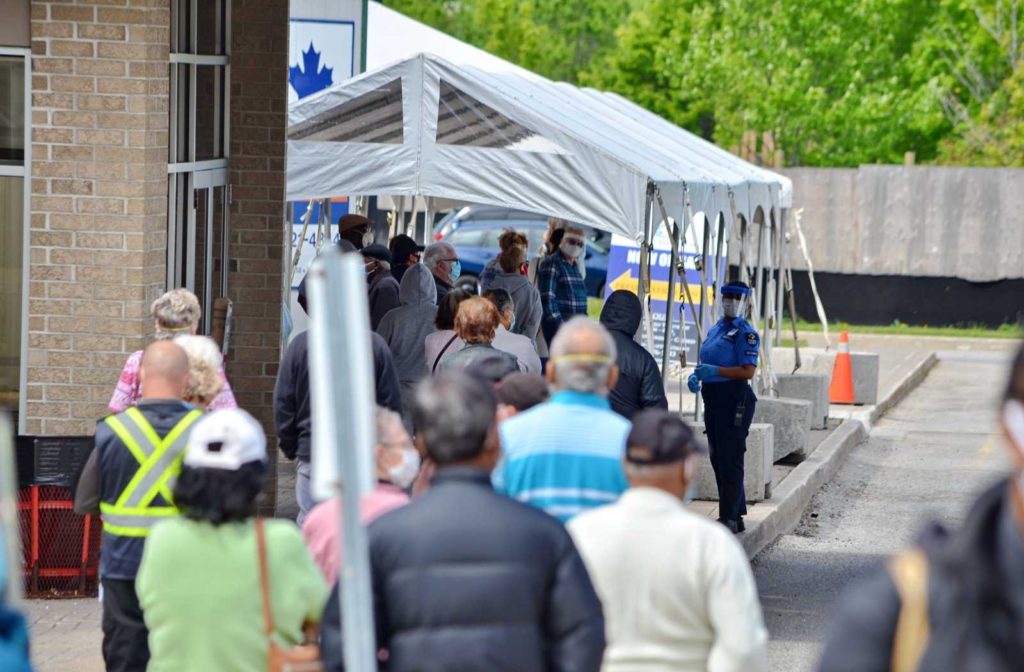COVID-19 has upset the balance of society everywhere you look. While economic downturn, schools’ social distancing measures, and unemployment are all problems for most— some of society’s at-risk populations are experiencing unfamiliar pressures. Homelessness is rising in Brampton and nearby Mississauga. The nature of the pandemic hinders conventional services for those in need.
That number of people is bound to grow as long as the COVID-19 crisis persists. But whether volunteers, donating stakeholders, or guests struggling with economic pressures — we’re all trying to work with strategic partners to find creative solutions to keep our communities habitable and safe.
Social Distancing & Emergency Shelters
Before the COVID-19 crisis, there was already a budding housing crisis in the Peel region, with 32% of 922 homeless experiencing chronic periods. Meanwhile, another 24% faced episodic homelessness.
Housing affordability has put pressure on at-risk populations for some time. By 2019, the situation was already dire. Subsidized housing keeps an option open for low-income households struggling with high rents and mortgages.
There were 7,000 subsidized units, all full, while 13,000 more households sat on a waitlist. 11,887 households received a housing subsidy while living elsewhere. The average wait time for subsidization for Peel residents was 6.42 years.
In May 2020, hotels were stepping in, to relieve the dangers of overcrowding. Before the pandemic, shelters could keep a certain number of occupants in for the night according to fire code.
But with the COVID-19 response, social distancing measures in place and a need for unconventional solutions has grown. In May 2020, 51% of the Peel region’s emergency shelter seekers shifted to hotels.
New Drop-In Centre
Regeneration has opened a new drop-in center in response to the crisis. Circumstances demanded that we contribute what we could so that 47% of Peel’s homeless region could still access shelter during the crisis.
To stay true to our mission, we’ve been working to lessen the risk of virus transmission by implementing safety measures. Since our drop-in centre opened, we’ve tried to keep our guests safe by screening new entrants, spacing them out, and disinfecting areas routinely.
Still, at-risk and vulnerable populations are struggling with income to meet needs that shelters can’t provide.
Unemployment & Economic Downturns
In the 2nd quarter of 2020, from April to July, unemployment in the Peel region grew to a record high of 15.7%. Youth unemployment was also up to another record high of 32.6%, meaning at-risk youth facing homelessness need support more than ever.
Families trying to provide for children have much less to work with when budgeting for goods and services beyond their basic needs. The unemployment rate’s spike during this period has been linked to restrictions on businesses due to the COVID-19 crisis.
It’s been the sharpest jump in the recorded history of the region’s isolated unemployment rates, reaching back to 2006.
Employment rates are expected to improve, but because of the time elapsed at those rates, unemployed persons facing homelessness are likely to be competing all at once for positions that can only open slowly and gradually due to lifting restrictions.
After food and permanent housing costs, disposable income has become significantly scarcer, thanks to the economic challenges. The need for functioning soup kitchens could help those struggling with disposable income.
Soup Kitchens
Soup kitchens have been severely cut back, with only a few still operating. Many have switched to a take-out only model. Dining in together with a hot lunch is something our community has relied on — not only for nourishing the hungry — but also to provide a sense of community and bonding.
Limited Dine-in
While Regeneration is keeping a close eye on gathering limits and how to form COVID-safe social circles effectively — we’ve maintained a dine-in option for Brampton soup kitchens as much as possible.
We’re also paying attention to the gap left by other soup kitchens closing temporarily to maintain safety for volunteers and guests — and working with strategic partners to combat hunger. For people facing homelessness in Brampton during these trying times, some coordinated efforts could go a long way.
Clothing
Since the COVID-19 crisis began, it hasn’t been obvious how clothing donation practices can or should adapt to the evolving situation. But there’s still a need for a decent clothing supply for people facing chronic or episodic homelessness in Brampton, especially for the winter portion(s) of the COVID-19 crisis.
A reliable practice for donating safely includes calling ahead to check on the status of clothing donation centres. If they’re closed for donation, it can pose a safety risk to dump them in front of a collection bin.
Also, hanging them on a rack in your home and merely waiting can help. If donation centres need to put a temporary hold on accepting clothing, it’s best to try again later. Because of the need for limited and sanitized contact between hands, would-be donations might not make it time for the coldest months.
Donation & Purchase
Regeneration Thrift Store is open and keeping conditions as COVID-safe as possible for shoppers in need of donated clothing. The need for clothing is here to stay, despite the dangers, but stakeholders who would like to donate clothing might be hesitant. Through it all, we’re here to help keep everyone clothed for the duration of the pandemic.
Pulling Through Together
The COVID-19 crisis has widened the cracks that people can fall through in this economy. Businesses struggle with affording to hire people, shelters can’t take as many in, and soup kitchens have to limit how many can share in meals at a time.
From shelters to clothes donation and soup kitchens, we’ve all had to rethink how we help people before they suffer from circumstances beyond their control. Don’t be afraid to reach out and connect with us if you’re in need or if you just want to see how you can help.




